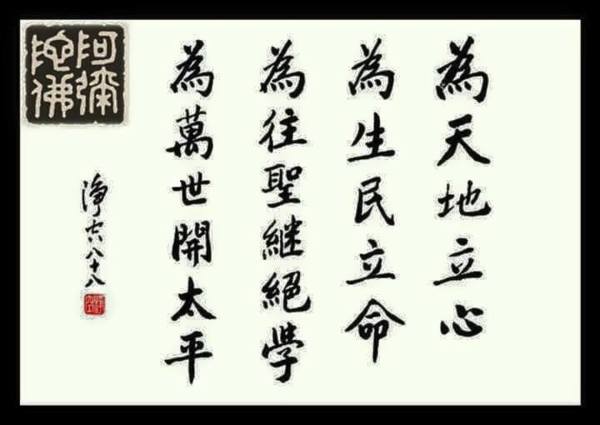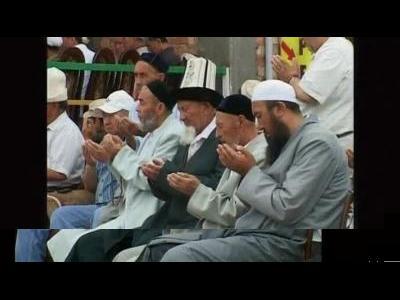VLKSM, Kyrgyzstan – Ethnic Uzbeks sheltering in squalid tent camps say they don't have enough food or clean water but are terrified of going back to live alongside those they hold responsible for days of shootings, arson and sexual assaults.
That air of suspicion was rife Friday among the hundreds of refugees crowded into gray canvas tents on a patch of arid scrub in this Kyrgyzvillage near the border with Uzbekistan.
"Where can we go now? Our belief in the future is dead," said Mamlyakat Akramova, who lived in the center of Osh, Kyrgyzstan's second-largest city and the epicenter of the violence that broke out last week.
Entire Uzbek neighborhoods of southern Kyrgyzstan have been reduced to scorched ruins by rampaging mobs of ethnic Kyrgyz who forced nearly half of the region's roughly 800,000 Uzbeks to flee for their lives.
The U.N. says as many as 1 million people will need aid, and Secretary-General Ban Ki-moon issued an appeal Friday for $71 million. "There are shortages of food, water and electricity in the affected areas, due to looting, lack of supply, and restrictions on movement," he said. "Hospitals and other institutions are running low on medical supplies."
The U.S. has released $32.2 million to meet immediate needs, and Russia and France sent planeloads of relief gear to Kyrgyzstan and Uzbekistan, where many have sought shelter from the violence.
The official death toll stood at about 200, but interim President Roza Otunbayeva, who toured the ravaged region Friday, said the real number is likely 10 times higher — 2,000 — because many victims were buried quickly in keeping with Muslim tradition.
In the border village of VLKSM, where thousands of ethnic Uzbeks were living in tents or sleeping in the open air, many said they couldn't bring themselves to return to their homes and live next to their attackers.
"This is our nation, this is a holy land, but I can't live here any more," said Mukhabat Ergashova, a retiree who had taken shelter with dozens of other in a crowded tent.
Supplies of bread and rice were arriving from Uzbekistan, keeping the refugees from starvation. However, overcrowding, bad sanitary conditions and a shortage of clean water contributed to the spread of illness, and overwhelmed doctors struggled to treat outbreaks of diarrhea and other ailments with paltry medical supplies.
"Children are washing in the canal and drinking the water — they don't know any better, they're only children," Ergashova said.
Thousands massed this week in VLKSM (Veh-L-Kah-S-M), a village just miles from Osh whose name is a Russian-language acronym for the Soviet Communist Youth League in a throwback to the Soviet era.
The United Nations estimates 400,000 people have fled their homes in the country's south, and about 100,000 of them entered Uzbekistan.
By Friday, the huge crowds at the border had largely dispersed, with many taking refuge at the homes of fellow Uzbeks on the Kyrgyz side of the border, often sleeping more than a dozen to room. Tens of thousands of others have crossed into Uzbekistan and settled into camps there.
In Osh, the atmosphere remained tense, with barricades of burned out cars and debris blocking Uzbek neighborhoods. Still, some refugees risked coming back from Uzbekistan. Over the past few days, Uzbek border guards have placed quilted blankets over barbed wire at the border to allow refugees to cross back into Kyrgyzstan.
Otunbayeva, the interim leader, arrived Friday by helicopter in the city's central square in the hope of conveying a sign of stability. She wore a bulletproof vest.
"We have to give hope that we shall restore the city, return all the refugees and create all the conditions for that," she said.
Uzbeks in Osh complained the government was doing too little to alleviate their suffering and said they were relying on small amounts of aid from Uzbekistan. Many refugees complained humanitarian supplies were being blocked and stolen by Kyrgyz officials.
Although some aid was trickling into Uzbek areas near the border, there was little sign the supplies were reaching neighborhoods closer to the heart of Osh that have been blocked off with barricades.
Elisabeth Byrs of the U.N. humanitarian office said 30 aid flights have arrived in Osh and Jalal-Abad, carrying 780 tons of medical aid and relief goods. The World Food Program started distributing 100 tons of rations to 13,000 people in Osh — enough for two weeks.
Still, some groups expressed frustration that aid was held up because of worries over security.
"We have the first money, the suppliers and local cooperation partners to hand out the relief in a fair and impartial way," said DanChurchAid aid coordinator Joergen Thomsen. "But we do not have a safe access so we cannot start our work."
U.S. Assistant Secretary of State Robert Blake, who visited a refugee camp in Uzbekistan about three miles (five kilometers) from the Kyrgyz border, was swamped Friday by crying refugees, mainly older women and children, complaining they were desperate to return home but too fearful to do so.
He said the U.S. was working with the Kyrgyz government to ensure the refugees would be able to return safely, and said there must be an investigation into the unrest.
Blake asked the refugees if they thought the violence had been organized, as the United Nations and Kyrgyz authorities have suggested.
"Yes, of course it was organized, it all happened so unexpectedly," answered Nasiba Mamyrdzhanova, a refugee from Osh who wore a traditional Uzbek long-sleeved dress with a bright headscarf.
Kyrgyz authorities have said the violence was sparked by associates of ex-president Kurmanbek Bakiyev, who was toppled in April amid accusations of corruption and a crackdown on the opposition. The U.N. has said the unrest appeared orchestrated but has stopped short of assigning blame.
U.S. Secretary of State Hillary Rodham Clinton said in Washington that it was too early to say who was behind the violence, but added that "there certainly have been allegations of instigation that have to be taken seriously."
"Certainly the ouster of President Bakiyev some months ago left behind those who are still his loyalists and very much against the provisional government," she said.
Many ethnic Uzbeks accused security forces of standing by or helping ethnic-majority Kyrgyz mobs as they slaughtered people and burned neighborhoods.
"We are all witnesses to the fact that innocent citizens were fired upon from an armored personnel carrier by soldiers in military uniform. I don't know whether they were from the government or some third party, but they only shot at Uzbeks," said Sabir Khaidir, and ethnic Uzbek in Jalal-Abad.
Col. Iskander Ikramov, chief of the Kyrgyz military in the south, rejected allegations





 本城市首頁
本城市首頁

































